
The Technion – Israel Institute of Technology is a public research university located in Haifa, Israel. Established in 1912 by Jews under the dominion of the Ottoman Empire, the Technion is the oldest university in the country.

The Hebrew University of Jerusalem is an Israeli public research university based in Jerusalem. Co-founded by Albert Einstein and Chaim Weizmann in July 1918, the public university officially opened on 1 April 1925. It is the second-oldest Israeli university, having been founded 30 years before the establishment of the State of Israel but six years after the older Technion university. The HUJI has three campuses in Jerusalem, one in Rehovot, one in Rishon LeZion and one in Eilat. Until 2023, the world's largest library for Jewish studies—the National Library of Israel—was located on its Edmond J. Safra campus in the Givat Ram neighbourhood of Jerusalem.

Science and technology in Israel is one of the country's most developed sectors. Israel spent 4.3% of its gross domestic product (GDP) on civil research and development in 2015, the highest ratio in the world. In 2019, Israel was ranked the world's fifth most innovative country by the Bloomberg Innovation Index. It ranks thirteenth in the world for scientific output as measured by the number of scientific publications per million citizens. In 2014, Israel's share of scientific articles published worldwide (0.9%) was nine times higher than its share of the global population (0.1%).
The Institute on Biotechnology and the Human Future (IBHF) is an affiliate of the Illinois Institute of Technology (IIT) and is housed at IIT's Chicago-Kent College of Law. The IBHF was founded in 2004 by Lori Andrews, J.D., and Nigel M. de S. Cameron, Ph.D., to discuss and analyze the ethical, legal, and social implications of biotechnologies.
Marcelle Machluf is an Israeli biologist.
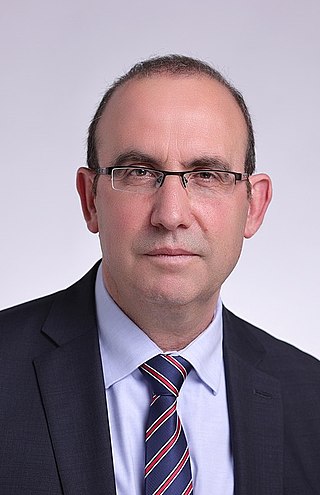
Ehud Gazit is an Israeli biochemist, biophysicist and nanotechnologist. He is Professor and Endowed Chair at Tel Aviv University and a member of the executive board of the university. In 2015, he was knighted by the Italian Republic for services to science and society. He was recently elected as the 2023 International Solvey Chair in Chemistry, a position that was previously held by 15 of the top world scientists including three Nobel laureates.
Charles Joel Arntzen is a plant molecular biologist. His major contributions are in the field of "plant molecular biology and protein engineering, as well as the utilization of plant biotechnology for enhancement of food quality and value, for expression of pharmacological products in transgenic plants, and for overcoming health and agricultural constraints in the developing world."

Martin Gerstel is an Israeli businessman. He was the CEO and co-chairman of Alza Corp. Martin Gerstel founded ALZA Corp. and Itamar Medical Ltd. M

CEA-Leti is a research institute for electronics and information technologies, based in Grenoble, France. It is one of the world's largest organizations for applied research in microelectronics and nanotechnology. It is located within the CEA Grenoble center of the French Alternative Energies and Atomic Energy Commission (CEA).
Haim Aviv was an Israeli scientist who specialized in the field of molecular biology. Aviv is considered to have a fundamental role in the shaping of the biotechnology industry in Israel, as he was widely involved in this industry since the late 1970s to this day.

Rivastigmine, sold under the brand name Exelon among others, is an acetylcholinesterase inhibitor used for the treatment of dementia associated with Alzheimer's disease and with Parkinson's disease. Rivastigmine can be administered orally or via a transdermal patch; the latter form reduces the prevalence of side effects, which typically include nausea and vomiting.
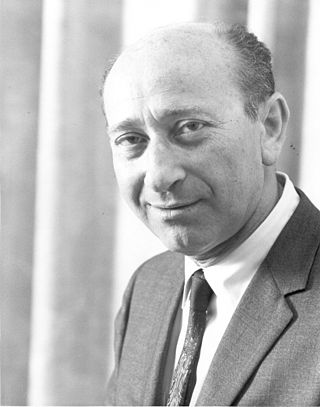
Menachem Lewin, was an Israeli chemist. Lewin worked in polymer, fiber and nanotechnology research. Until his death, a month before his 93rd birthday, Lewin was in charge of a research program at the Polytechnic Institute of New York University. In 2009, he was appointed as editor-in-chief of the Encyclopedia on Fiber science and Engineering, to be published by Wiley in New York. Lewin obtained 29 U.S. and European patents and published 175 peer-reviewed publications. He was the founder (1990) and editor-in-chief of the international monthly journal Polymers for Advanced Technologies (PAT). PAT sponsors international biannual symposia for scientists, and Lewin often served as chairman, co-chairman or honorary chairman.
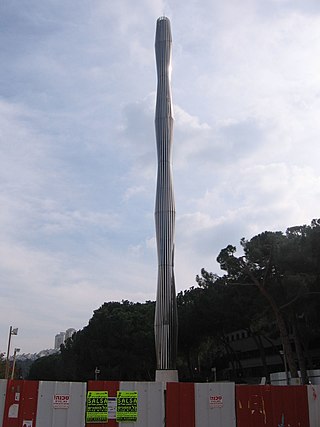
T3 Technion Technology Transfer is the technology transfer unit of the Technion – Israel Institute of Technology in Israel. The unit operates under the auspices of the Technion Research & Development Foundation.
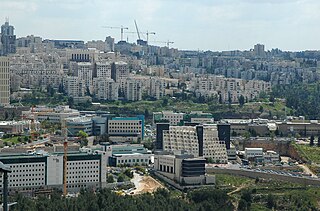
BioLineRx Ltd., or BioLine, is a publicly traded drug development company. Headquartered in Israel, its shares are traded on the NASDAQ Capital Market and on the Tel Aviv Stock Exchange.
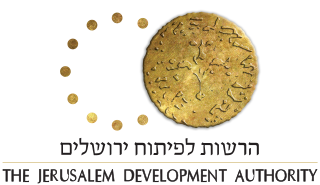
The Jerusalem Development Authority, or JDA, is a joint agency of the Israeli government and the Jerusalem Municipality that works to promote and develop the economy of the city of Jerusalem. The Authority was founded by Uziel Wexler and was established as a statutory corporation under the Jerusalem Development Authority Law 1988. Teddy Kollek was one of the key figures behind its establishment.
Vincent Mangematin is a French researcher and professor in management, specialized in Strategy, Strategic management of Innovation and Technology Management. He is currently professor and scientific director at Grenoble Ecole de Management.

The Israel Innovation Authority (IIA) is the support and investment arm of the Israeli government, in charge of planning and executing the country’s innovation policy, promoting technological innovation and research and development (R&D) in the state of Israel.
Yaakov "Koby" Nahmias is an Israeli biomedical engineer and entrepreneur. Nahmias is a professor at the Hebrew University of Jerusalem and an affiliated member of the NIH-funded BioMEMS Resource Center at Massachusetts General Hospital.
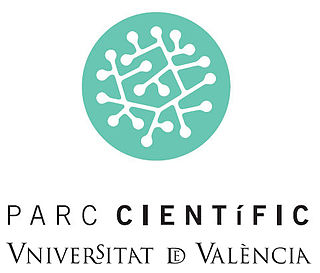
The University of Valencia Science Park provides spaces and services to companies resulting from university research, –spin-off–, and other companies and R & D departments with content related to the innovative nature of the PCUV.

Marta Weinstock-Rosin is an Austrian-born Israeli neuropharmacologist, best known as the developer of rivastigmine (Exelon).













